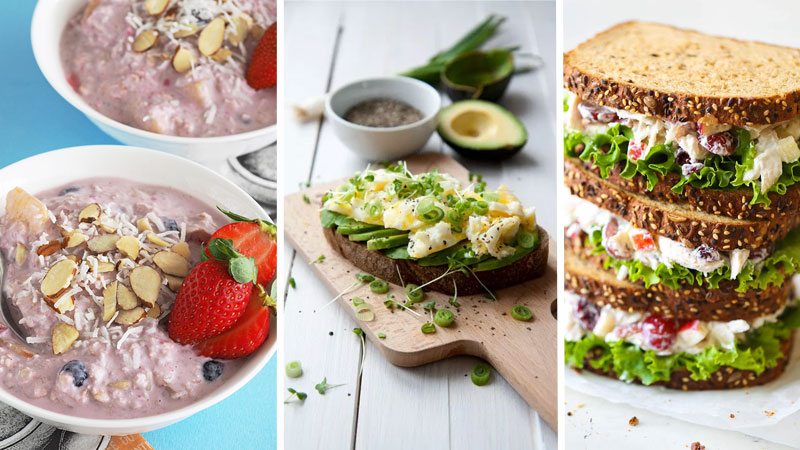
Your pre-workout meal is the difference between tearing the gym down and barely putting a dent in it. If you’re wondering what you should eat before a session … we’ve got you covered.
A great coach will tell you that it’s all about preparation.
To get the very best from your workouts you have to lay the foundations before you even set foot in the weights room.
Get it right and you’ll be supercharged and superhuman – full of bar-bending energy and unbreakable stamina. Get it wrong and your workouts will feel flat, weak and unproductive.
Want to perform at your best?
Check out our guide to pre-workout meals…
Why should you eat before a workout?
It’s essential to fuel your workouts with optimal energy-inducing foods. It’s the only way to ensure a great workout.
Athletes, bodybuilders and physique pros are always looking for that added edge. The extra 1% that takes their workouts from dull to deadly and from unplanned to goal-oriented.
Having the right levels of energy going into a workout maximizes performance. It boosts your strength, ramps up your stamina and gives you relentless endurance… no matter how hard your gym session is.
The bottom line is you should always eat something before exercising.
Not right away – that’ll leave you feeling sick and bloated.
But grabbing the right foods an hour or so before hitting the gym floor is essential for a good workout.
As nutrition experts, it’s our job at Greatest Physiques to optimize the way our athletes perform.
We know that the power behind the best workout comes from the nutrients you consume beforehand. Proper nutrition fuels your body, providing the building blocks necessary to carry you through set after set, rep after rep.
You ever driven your car on empty?
It feels sluggish, performs poorly and eventually just runs out of juice. Your body’s the same… it dips, judders and eventually grinds down to a halt as energy levels hit their lowest.
Key Point: Eating an hour or two before your workout provides your body with accessible, optimal energy stores.
What about fasted training?
The theory with fasted training is that by ditching pre-workout carbs, your body turns to stored fat for energy.
And that’s kind of true.
Some studies show an increase of fat oxidization of 20-30%.
However, it’s a trade-off.
Fasted workouts are often less intense and productive because you’ve not got as much immediate energy when you need it most. You might burn more fat as a relative percentage… but fewer overall calories.
You’re not really gaining anything.
A publication by world renowned researcher Brad Schoenfeld in the Journal of the International Society of Sports Nutrition found there’s no difference in body composition change between fasted athletes and those receiving a pre-workout meal (250 kcal, 40 g carbs, 20 g protein, 0.5 g fat) [1].
In other words, fasted training doesn’t offer any specific benefits.
It’s far more comfortable to train with optimal energy from a satiating and energy-giving pre-workout meal perspective. That way you know you’re fully prepared.
Key Point: There’s no benefit to training fasted. A good pre-workout meal not only prepares your body for exercise, but keeps you satiated too.
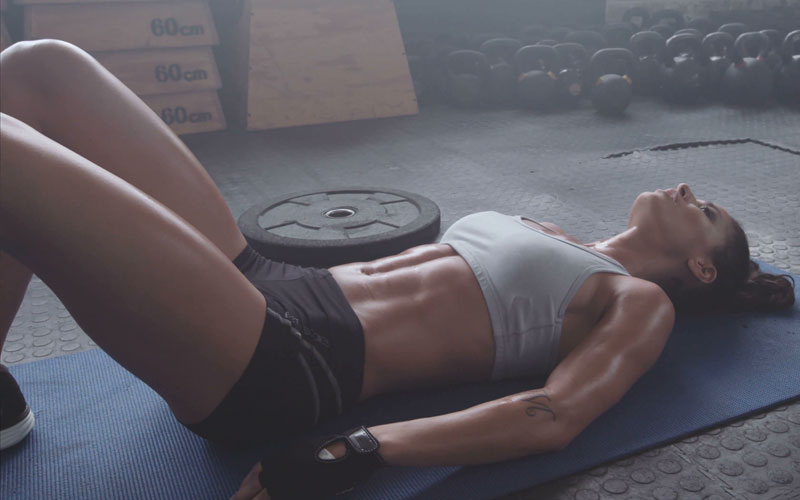
What to eat before a workout?
The right foods at the right time will help you smash your workouts and get the best results possible.
Fueling your body with the best nutrients is key.
There are many opinions about what you should eat before you hit the gym. But the bottom line is that the right foods light the touch paper and start the countdown to your explosive workout. Time it right and your session will go with a bang.
Each macronutrient is key for optimal exercise performance. But it’s all about food choice, ratios and quantities.
This is what you need to know…
Improve exercise performance with carbs
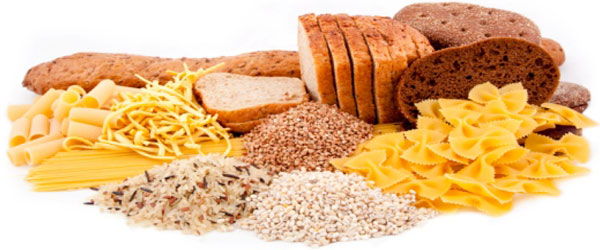
Your body can store around 400 g of carbs as glycogen in your muscle and liver cells – that’s 2,000 kcal. When you need it, your body breaks down the stored glycogen into glucose, dumps it in your blood and off it goes to where it’s needed.
It provides an easy-to-access reservoir of energy that shuttles straight to your cells during exercise, helping them to power you through your workout.
There’s a phenomenal amount of evidence showing carbs are a valuable pre-workout meal.
Studies show that carbs before intense cardio exercise boost performance. A review paper published in Nutrients found that a carb-rich pre-workout meal helped to preserve fuel stores, particularly later in a workout when fatigue starts to kick in [2].
Other studies show that a carb-rich pre-workout meal ramps up both endurance and high-intensity exercise performance [3].
Studies also show that a small hit of carbs immediately prior to tough cardio training enhances performance too. For example, Neufer [4] found that 45 g of liquid carbs taken just before a 45-minute cycling test improved athletes’ power output in the last 15 minutes by a significant amount.
Many athletes choose a high-carb pre-workout meal an hour before training.
Choosing unrefined carbs is a good idea as they help to keep you feeling fuller for longer compared to sugary snacks. These tend to have a lower glycemic response.
Good choices an hour or so before exercise include:
- Oatmeal
- Brown rice
- Wholemeal bagels
- Whole wheat pasta
- Root vegetables
- Legumes
So, how much carbohydrate do you need?
It depends on body weight really, but 50 g or so will see you through even the toughest of workouts. It all comes down to trial and error – if you need more or less than that, adjust accordingly.
“Consuming a meal in the hours preceding an event is one method for maximizing glycogen stores and potentially influencing its utilization during exercise” [2]
Protein boosts muscle cell synthesis
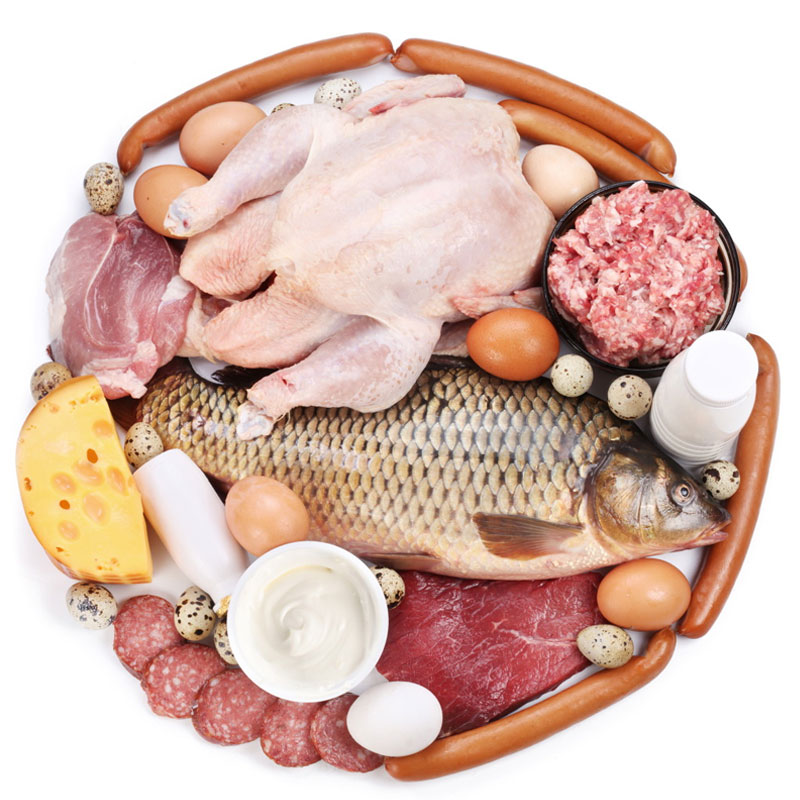
Whether your goal is to build muscle, maximize athleticism or shred body fat, protein is essential.
Used by your body for growth, repair and development, protein is made up of amino acids.
It’s these that provide the ‘building blocks’ your muscles need to sustain shape and function.
Numerous studies have shown that protein intake before a workout enhances muscle protein synthesis (MPS). This is the driving force behind muscle growth and the positive adaptations to exercise.
Protein is either beneficial on its own [5, 6] or when combined with carbs [7].
Pre-workout protein also helps to boost recovery too, limiting the amount of muscle damage that occurs from intense exercise [8].
How much protein should you include in your pre-workout meal?
According to research, around 20-30 g. That’s enough to keep your muscle protein synthesis ticking over and protect your body from muscle damage.
Good sources of pre-workout meal protein include:
- Yogurt
- Whey
- Poultry
- Red meat
- Soy
“Protein multi-nutrient supplements used before a workout enhance performance and hormonal responses associated with an acute bout of resistance exercise” [8]
Don’t forget to drink up!

Even a small decrease in hydration can impact performance.
Your body is 55-75% water. It’s needed by every cell in your body to function effectively.
Losing just 1% of your body weight in water will result in cognitive and physical impairment. At 3% your endurance and maximal strength will nosedive. And if you’re unlucky enough to hit 10% you’ll experience anxiety, confusion, rapid heart rate and are at genuine risk of severe health complications [9].
The benefits of drinking water before your workout aren’t limited to performance either:
- Increases metabolism
- Boosts immune function
- Helps to flush out metabolite build-up
- May help to prevent cramp
Chugging a glass of water or electrolyte-balanced sports drink before your workout will help you get the best from your session.
Your timing is everything
Don’t just plan your workout… plan your pre-workout too.
The timing of your pre-workout meal is important.
Too early and you’ll no doubt feel hungry as you set foot in the gym. Too late and you’ll feel sluggish. Food will be sat in your stomach and can cause nausea and vomiting.
1-2 hours is perfect.
It prevents any unwanted side effects without compromising performance.
But it might not be achievable depending on the time you train or how much opportunity you have to grab a pre-workout meal before you swipe your membership card at gym.
If that’s the case, try smaller meals the nearer you get to your workout. It’s a compromise between no energy at all and taking on too much food bulk.
Key Point: It’s recommended that you eat 1-2 hours before your workout. If you must eat nearer than that, consider liquid carbs and protein as an alternative to an actual meal.
Our top 3 pre-workout meals
There’s an argument that your pre-workout meals might differ based on the activity you’re taking part in. And that’s true – longer, endurance-type activities should be higher in carbs, whereas a strength-training workout will likely need a larger hit of protein.
However, both carbs and protein should be part of each meal.
You can then just play around with the ratios to suit you, your individual needs and the needs analysis of the sport.
Here are some of our go-to pre-workout meals for you to try:
Oatmeal with yogurt, nuts and berries
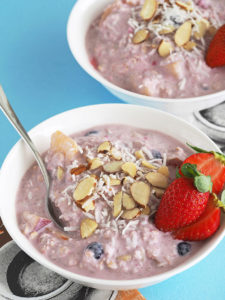
Oats are a rich source of carbs.
The high beta-glucan content keeps you feeling full for hours.
Oats are high in soluble fiber meaning they absorb water (and milk). Overnight oats are a great idea as they make your oatmeal for a chewy and sweet dish. Alongside the other ingredients, this is a fantastic pre-workout meal that’s both simple and cheap.
The addition of milk and a dollop of Greek yogurt add in some much-needed protein.
Yogurt is particularly high in amino acids and a great source of calcium too – important for both bone and muscle health.
Nuts are a great source of minerals and fatty acids and the berries provide important micronutrition to support how your body uses energy during your workout.
Scrambled egg and avocado on rye
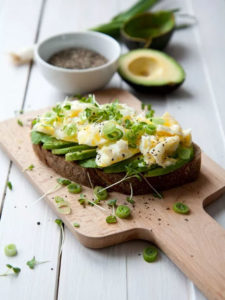
Scrambled egg is an old-school bodybuilder favorite that provides complete nutrition.
Eggs are naturally high in protein and the yolk provides important fatty acids, vitamins and minerals.
They’re also high in natural vitamin D3 levels. This secosteroid hormone is important for heart health, muscle recovery and cognitive function. It’s also essential for optimal testosterone levels too.
Rye bread is a high-fiber cereal grain and great source of slow-releasing carbs.
It’s also high in magnesium which supports anabolic hormone production, and a range of other nutrients such as potassium, zinc, vitamin E and iron.
Finally, avocado rounds off the balance of this meal by providing flavor, texture and a creamy blast of HDL cholesterol.
It tastes great and is packed full of workout-optimizing benefits.
Chicken sandwich on wholemeal
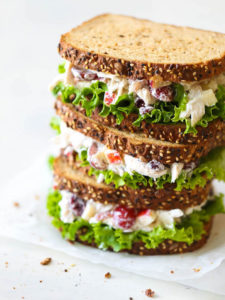
This meal is so simple but so effective.
Just two slices of grainy goodness from the bread and a big serving of protein from the chicken.
The rest is up to you. You can throw in some mayo for more protein, fatty acids and minerals.
Salad leaves and peppers act as multivitamins, providing a full scope of nutrients.
You can even add phytonutrient rich fruits such as blueberries or grapes for even more natural nutrition power.
Just be aware of total calorie count.
You can swap out wholemeal bread for Ezekiel bread if you prefer. Made from sprouted grains, it’s higher in protein and doesn’t contain added sugars.
Pre-workout supplements, Yes or no?
Hell yes.
Pre-workout supplements offer benefits that simple pre-workout meals unfortunately just can’t give you.
It’s normal to feel tired before a workout.
Even with a meal an hour or so before a workout, the thought of driving to the gym and getting under some heavy iron just isn’t doing it for you. And even if you do set foot in the gym, who’s to say you’ll have a great workout. It might be flat, unproductive and demotivating.
That’s where pre-workout supplements come in…
Designed using natural ingredients and hours and hours of scientific research, pre-workout supplements are made with one goal in mind… to take your workouts from zero to one hundred.
- More energy to crush your workouts and reach your goals faster, with less effort
- Unrelenting motivation, focus and drive
- Stronger muscle contractions, force, and power
- Enhanced stamina and endurance
- Feel invincible in every workout
The best pre-workout supplements aren’t just caffeinated rocket fuel. They target your whole physiology – boosting muscle cell signaling, muscle pumps, mood, and energy levels.
With a great pre-workout you’re guaranteed to smash your targets and etch out your greatest physique yet.
Check out our impartial review of the best pre-workout supplements and ramp up your results in your very next workout.
The bottom line
To get the best from your workouts you need a good, carb-protein meal and a solid pre-workout supplement.
It’s simple stuff like this that has the greatest impact on your body. Not only will you perform better, you’ll recover faster too.
References
[1] Schoenfeld, BJ et al. Body composition changes associated with fasted versus non-fasted aerobic exercise. JISSN. 2014; 11: 54
[2] Ormsbee, MJ et al. Pre-Exercise Nutrition: The Role of Macronutrients, Modified Starches and Supplements on Metabolism and Endurance Performance. Nutrients. 2014; 6(5): 1782-1808
[3] Cermak, NM et al. The use of carbohydrates during exercise as an ergogenic aid. Sports Med. 2013; 43(11): 1139-55
[4] Neufer et al. Improvements in exercise performance: effects of carbohydrate feedings and diet. J Appl Physiol. 1987; 62(3): 983-988
[5] Tipton, KD et al. Stimulation of net muscle protein synthesis by whey protein ingestion before and after exercise. Am J Physiol Endocrinol Metab. 2007; 292(1): E71-6
[6] Willoughby, DS et al. Effects of resistance training and protein plus amino acid supplementation on muscle anabolism, mass, and strength. Amino Acids. 2007 32(4): 467-477
[7] Tipton, KD et al. Timing of amino acid-carbohydrate ingestion alters anabolic response of muscle to resistance exercise. Am J Physiol Endocrinol metab. 2001; 281(2): E197-206
[8] Kraemer, WJ et al. Effects of a multi-nutrient supplement on exercise performance and hormonal responses to resistance exercise. Eur J Appl Physiol. 2007; 101(5): 637-46
[9] Sawka, MN et al. Effects of body water loss on physiological function and exercise performance. In: Gisolfi, CV et al eds. Fluid homeostasis during exercise. Carmel, Ind: Benchmark Press; 1990: 1-38



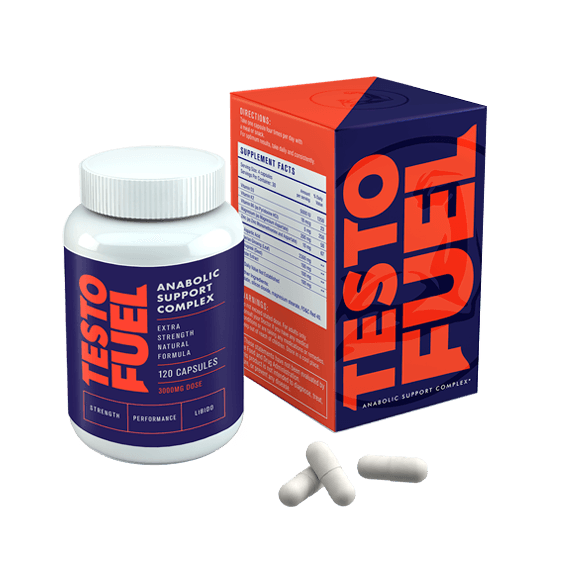
Comments are closed